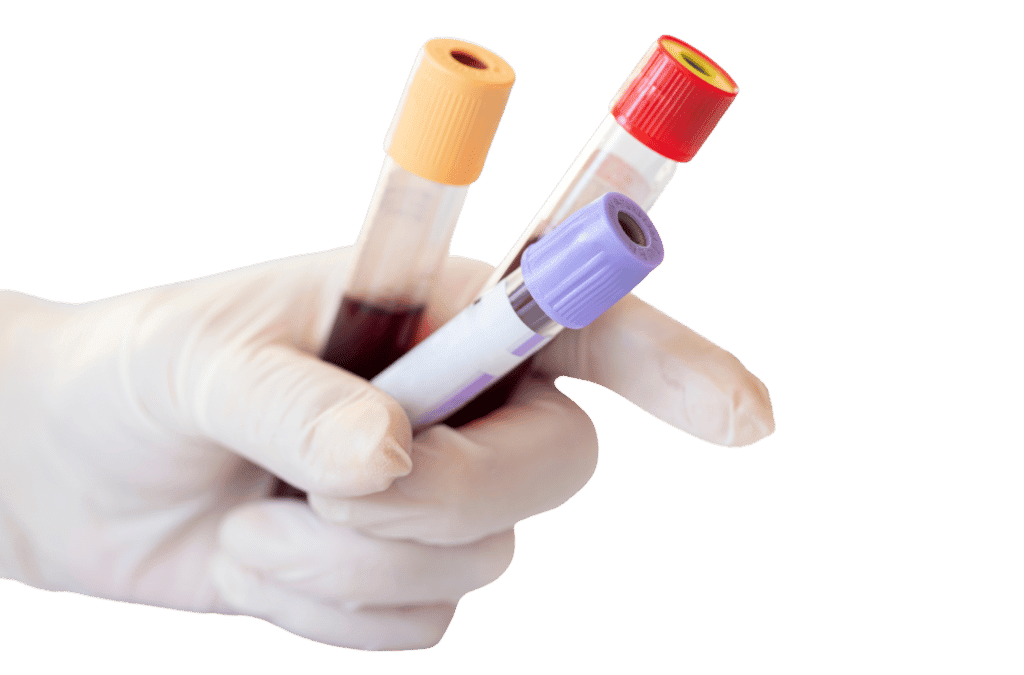A blood test is a simple and common medical test that helps doctors understand what’s happening inside your body. It involves taking a small sample of your blood, usually from your arm, and sending it to a lab for analysis. Blood tests can show many things, like how well your organs are working, if you have certain illnesses, or if your body has the right amount of vitamins and minerals.
Blood tests are helpful because they give clear and accurate results. Sometimes, people feel sick, but it’s hard to tell what’s wrong just by looking or asking questions. A blood test can give clues that help doctors make better decisions. Even when you feel fine, a regular blood test can find hidden issues early, which makes it easier to treat them before they get worse.
Doctors use blood tests to check for things like infections, diabetes, cholesterol levels, and even heart or liver problems. This makes them an important part of staying healthy. Whether it’s your first test or one of many, knowing what blood tests do and why they matter helps you take better care of your health.
Types of Blood Tests Commonly Done
There are many different kinds of blood tests, and each one has a special purpose. Knowing the most common ones can help you understand what your doctor is checking for during your visit.
Complete Blood Count
The complete blood count, or CBC, is one of the most basic blood tests. It checks the levels of red blood cells, white blood cells, and platelets. Red blood cells carry oxygen, white blood cells fight infections, and platelets help your blood clot. A CBC can show if you have anemia, an infection, or even signs of blood disorders.
Doctors often use CBC tests when someone feels tired, weak, or has unusual bleeding. This test helps find problems early so treatment can begin right away.
Blood Sugar Test
This test checks the level of glucose (sugar) in your blood. It’s most often used to see if someone has diabetes or is at risk of getting it. If your blood sugar is too high or too low, it can cause serious health problems.
Doctors may ask you to fast (not eat) before this test to get accurate results. It helps them understand how well your body is processing sugar, which is very important for overall health.
Lipid Panel
A lipid panel checks your cholesterol and fat levels in your blood. It measures good cholesterol (HDL), bad cholesterol (LDL), and triglycerides. High levels of bad cholesterol can lead to heart problems over time.
This test is important for people of all ages, especially if you have a family history of heart disease. With this test, your doctor can suggest changes to your diet or lifestyle to lower your risk.
How to Prepare for a Blood Test
Getting ready for a blood test is usually simple, but doing it the right way helps make sure your results are accurate. Here’s what to know before you go.
Fasting and Food Rules
Some blood tests require you to fast for 8 to 12 hours before the test. That means you can’t eat or drink anything except water. Tests that often need fasting include blood sugar and cholesterol tests.
Eating before one of these tests can affect the results, making them higher or lower than they really are. Always follow your doctor’s instructions. If you’re not sure, just ask. It’s better to double-check than to risk an incorrect result.
Medications and Timing
Tell your doctor about any medicines you are taking. Some drugs can change blood test results. Your doctor might ask you to skip a dose or take it at a different time. Also, try to get your test done at the same time of day if you’ve had one before. This keeps results consistent and easier to compare.
Stay calm and drink plenty of water before your test. This can make it easier to draw blood and keep you from feeling dizzy or tired after the test.
What Blood Test Results Can Show
Once your blood sample is tested in the lab, you’ll get the results. These results can give a lot of information about your health. Here’s what they usually include.
Understanding Normal and Abnormal Levels
Every blood test has a “normal” range. This range shows what is typical for most healthy people. If your number falls outside this range, it doesn’t always mean something is wrong, but it does mean your doctor will look more closely.
For example, if your blood sugar is a little high, it might just mean you need to change what you eat. But if it’s very high, it could mean you have diabetes. Abnormal results are like warning signs. They help doctors catch health problems early and treat them fast.
Using Results to Plan Treatment
Your doctor uses your blood test results to guide your care. If your results are good, you may just continue your regular habits. If something is off, your doctor may suggest more tests or a treatment plan. That could include medicine, changes to your diet, more exercise, or follow-up testing.
Blood test results are also helpful for tracking how well treatments are working. If you’re already being treated for something like high cholesterol or diabetes, your blood tests will show if the treatment is helping.
Why Regular Blood Tests Are Important
Even if you feel healthy, regular blood tests are a smart way to keep your body in check. They act like an early warning system that can catch problems before you feel sick.
Preventing Health Issues Early
Many health problems, like high cholesterol or diabetes, don’t cause clear symptoms at first. A blood test can catch these issues before they get serious. That way, your doctor can help you make changes early on. It’s easier to stop a problem early than fix it later when it’s worse.
By checking your blood regularly, you also build a history of your health. If something changes later, your doctor can look back and compare to find out what’s different. This helps get a clearer picture of your body over time.
Building Better Health Habits
When you see your blood test results, it’s easier to understand how your choices affect your body. If your cholesterol is high, you might start eating better or exercising more. If your blood sugar is high, you may cut back on sweets. This gives you more control over your health.
Regular blood tests keep you informed. They let you take action early, work with your doctor better, and feel confident that you’re doing what you can to stay healthy.
Conclusion
Blood tests are one of the most powerful tools in modern healthcare. They help detect problems early, guide treatments, and track your progress over time. Whether it’s checking for disease, measuring vitamins, or managing long-term conditions, blood tests give doctors the information they need to keep you healthy.By understanding what blood tests do and staying on top of your health through regular testing, you take control of your well-being. It’s a small step that can lead to big health benefits in the future.




